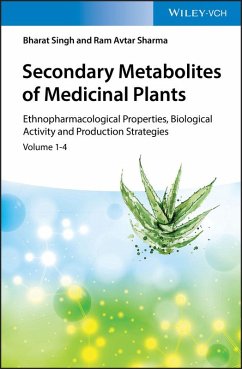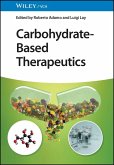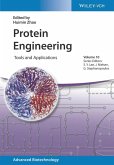Covers the structurally diverse secondary metabolites of medicinal plants, including their ethnopharmacological properties, biological activity, and production strategies Secondary metabolites of plants are a treasure trove of novel compounds with potential pharmaceutical applications. Consequently, the nature of these metabolites as well as strategies for the targeted expression and/or purification is of high interest. Regarding their biological and pharmacological activity and ethnopharmacological properties, this book offers a comprehensive treatment of 100 plant species, including Abutilon, Aloe, Cannabis, Capsicum, Jasminum, Malva, Phyllanthus, Stellaria, Thymus, Vitis, Zingiber, and more. It also discusses the cell culture conditions and various strategies used for enhancing the production of targeted metabolites in plant cell cultures. Secondary Metabolites of Medicinal Plants: Ethnopharmacological Properties, Biological Activity and Production Strategies is presented in four parts. Part I provides a complete introduction to the subject. Part II looks at the ethnomedicinal and pharmacological properties, chemical structures, and culture conditions of secondary metabolites. The third part examines the many strategies of secondary metabolites production, including: biotransformation; culture conditions; feeding of precursors; genetic transformation; immobilization; and oxygenation. The last section concludes with an overview of everything learned. -Provides information on cell culture conditions and targeted extraction of secondary metabolites confirmed by relevant literature -Presents the structures of secondary metabolites of 100 plant species together with their biological and pharmacological activity -Discusses plant species regarding their distribution, habitat, and ethnopharmacalogical properties -Presents strategies of secondary metabolites production, such as organ culture, pH, elicitation, hairy root cultures, light, and mutagenesis Secondary Metabolites of Medicinal Plants is an important book for students, professionals, and biotechnologists interested in the biological and pharmacological activity and ethnopharmacological properties of plants.
Dieser Download kann aus rechtlichen Gründen nur mit Rechnungsadresse in A, B, BG, CY, CZ, D, DK, EW, E, FIN, F, GR, HR, H, IRL, I, LT, L, LR, M, NL, PL, P, R, S, SLO, SK ausgeliefert werden.









